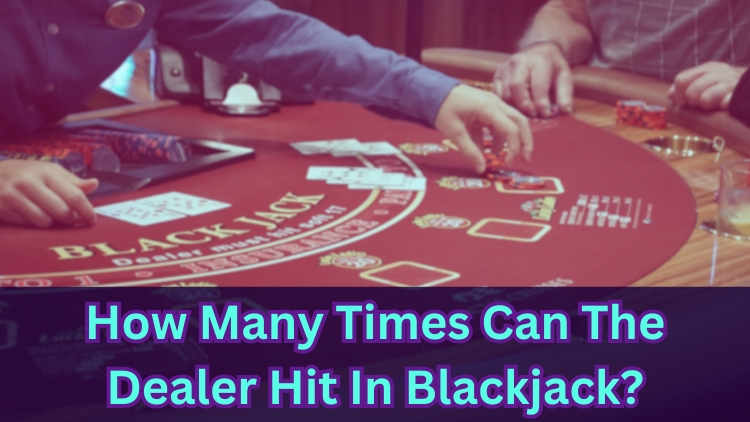
Blackjack is one of the most popular casino games, enjoyed by many for its blend of skill and chance. If you're new to the game, or an experienced player, you might wonder about the dealer’s actions, especially how many times they can hit.
Understanding the dealer’s rules can provide insight into the game’s strategy and may help you make more informed decisions. In this Pay By Mobile Casino blog post, we’ll explore the dealer's hitting rules and what that means for your gameplay. By the end, you'll have a clearer picture of this key aspect of Blackjack and may feel more confident at the table.
What Does Hit Mean In Blackjack?
In Blackjack, the term “hit” is essential to grasp. When you or the dealer “hit,” it means taking an additional card to try to get closer to 21 without going over.
This decision adds a layer of strategy for players. You can request a hit by tapping the table, or verbally asking for a card.
Understanding this action is vital for both players and dealers. Dealers have specific rules about when to hit and when to stand, which can impact the outcome of the game.
By knowing what a hit means, you're better prepared to engage in the game thoughtfully and responsibly.
How Many Times Can The Dealer Hit?
In Blackjack, the dealer's actions are governed by strict rules, which are designed to maintain fairness in the game. One of these rules is about how many times the dealer can hit.
The number of hits a dealer can take isn't fixed. Instead, it depends on the total value of the dealer's hand. Generally, if the dealer's hand totals 16 or less, they must hit until their hand reaches at least 17. This could mean taking multiple hits until the total is 17 or higher.
Once the dealer's hand totals 17 or more, they must stand. In this context, it doesn't matter if the dealer's hand contains hard or soft totals. For instance, a soft 17 (Ace and 6) is treated the same as a hard 17; the dealer usually stands in both cases.
Understanding these rules can help in trying to predict the possible outcomes and making strategic decisions in the game. Remember, the dealer has no choice in these actions, as they must abide by these game rules.
When Does The Dealer Have To Hit In Blackjack?
In Blackjack, the dealer's actions are dictated by specific rules, which ensure consistency in the game. Generally, if the dealer's hand totals 16 or less, they have to hit. This rule remains consistent across most Blackjack tables.
However, there can be variations depending on the game variant or the specific casino rules. Some variations might require the dealer to hit on a soft 17, which is a hand that includes an Ace counted as 11, totalling 17.
For example, in a game where the dealer hits on soft 17, a hand with an Ace and a 6 would require the dealer to take another card. In other versions, the dealer must stand on all 17s, whether the hand is soft or hard.
Familiarising yourself with the specific rules of the Blackjack table you're playing at is essential. Knowing when the dealer has to hit can influence your strategy and help you make more informed decisions during the game.
By understanding these rules, you may better anticipate the dealer’s actions and enjoy a more confident and knowledgeable Blackjack experience.
Play Blackjack at Pay By Mobile Casino
Experience the fun of Blackjack at Pay By Mobile Casino. Our platform offers a seamless way to play your favourite casino game using your mobile. Sign up online to enjoy a secure, user-friendly environment, with various Blackjack variants to suit nearly all preferences.
Playing at Pay By Mobile Casino means you can easily fund your account directly through your mobile bill, making it convenient and hassle-free. Join us and discover why so many players choose our casino for their Blackjack sessions.
Please gamble responsibly.
*All values (Bet Levels, Maximum Wins etc.) mentioned in relation to these games are subject to change at any time. Game features mentioned may not be available in some jurisdictions.
